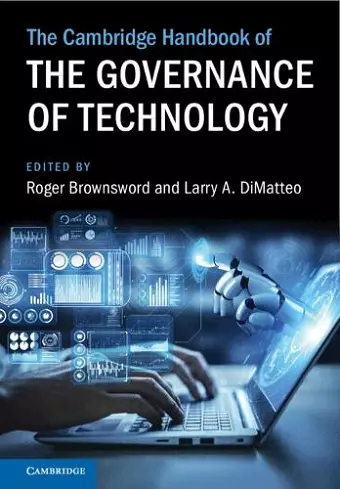The Cambridge Handbook of the Governance of Technology
Larry A DiMatteo editor Roger Brownsword editor
Format:Hardback
Publisher:Cambridge University Press
Published:13th Nov '25
£160.00
Supplier delay - available to order, but may take longer than usual.

A critical analysis of advanced AI aiming to prevent manipulation and harm from the rapid proliferation of AI applications.
This book poses a regulatory plan for AI before modern technology becomes too advanced. It makes the world of AI more accessible, explaining the benefits and harms that advanced AI poses to individuals and society. The book examines different approaches to AI regulation and the best way forward.In recent years, the use of AI has skyrocketed. The introduction of widely available generative AI, such as ChatGPT, has reinvigorated concerns for harm caused to users. Yet so far government bodies and scholarly literature have failed to determine a governance structure to minimize the risks associated with AI and big data. Despite the recent consensus among tech companies and governments that AI needs to be regulated, there has been no agreement regarding what a framework of functional AI governance should look like. This volume assesses the role of law in governing AI applications in society. While exploring the intersection of law and technology, it argues that getting the mix of AI governance structures correct-both inside and outside of the law-while balancing the importance of innovation with risks to human dignity and democratic values, is one of the most important legal-social determination of our times.
ISBN: 9781009522533
Dimensions: 254mm x 178mm x 19mm
Weight: 829g
328 pages